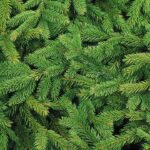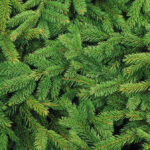Adjectives with Fixed Modifiers – Yhdysadjektiivit
The name of this post is not incredibly catchy, but it’s the best one I could think of. Adjectives with fixed modifiers (alkumäärite) consist of a regular adjective with an element in front of it that modifies its meaning.
If you’re a beginner, you should focus on the page about adjectives and their opposites, and the colors first. The subject of this page is significantly more advanced. If you like this type of word play, you will probably also enjoy my page on animal comparisons.
These modifiers can have different functions. Some of them make the adjective stronger (ilmiselvä, vuorenvarma), others make it more specific (lumivalkoinen, taivaansininen). Depending on the word, the first segment can appear in either their basic form, or the genitive case.
| Finnish | English | Explanation |
|---|---|---|
| hiirenhiljaa | as quiet as a mouse | hiiri “mouse” (genitive) + hiljaa “quiet” |
| hiuksenhieno | super fine, subtle | hius “hair” (genitive) + hieno “fine” |
| iki-ihana | exquisit, ever-lovely | iki- prefix “eternal” + ihana “lovely” |
| ikivanha | really old, ancient | iki- prefix “eternal” + vanha “old” |
| ilmiselvä | totally clear, obvious | ilmi “outright, known” + selvä “clear” |
| jääkylmä | ice-cold | jää “ice” + kylmä “cold” |
| kalmankalpea | deathly pale | kalma “death (genitive)” + kalpea “pale” |
| kivikova | rock-hard | kivi “stone, rock” + kova “hard” |
| kristallinkirkas | crystal clear | kristalli “crystal” (genitive) + kirkas “clear” |
| kullankallis | dear/precious as gold | kulta “gold” (genitive) + kallis “expensive, dear” |
| kullankeltainen | golden yellow | kulta “gold” (genitive) + keltainen “yellow” |
| kuolemanvakava | deadly serious | kuolema “death” (genitive) + vakava “serious” |
| langanlaiha | really skinny, emaciated | lanka “thread,” (genitive) + laiha “skinny” |
| likomärkä | soaking wet, drenched | liota, likoaa (to soak, soaks) + märkä “wet” |
| lumivalkoinen | snowwhite | lumi “snow” + valkoinen “white” |
| läpimätä | rotten to the core | läpi “through” + mätä “rotten” |
| patalaiska | bone-idle | pata “cauldron” + laiska “lazy” |
| pikimusta | pitch black | piki “pitch” + musta “black” |
| pilkkopimeä | pitch dark | pilkottaa “to be barely visible” + pimeä “dark” |
| pähkähullu | stark mad | maybe from pähkiä “to ponder” + hullu “crazy” |
| päivänselvä | clear as day | päivä “day” (genitive) + selvä “clear” |
| raivohullu | raving mad | raivo “rage” + hullu “crazy, mad” |
| ratkiriemukas | hilarious, side-splitting | ratki “ripped, torn” + riemukas “joyful” |
| ruohonvihreä | grass-green | ruoho “grass” (genitive) + vihreä “green” |
| ruutikuiva, rutikuiva | dry as dust | ruuti “gunpowder” + kuiva “dry” |
| rutiköyhä | penniless | probably influenced by “rutikuiva“ |
| salamannopea | quick as lightning | salama “lightning” (genitive) + nopea “quick” |
| sysimusta | jet-black | sysi “charcoal” + musta “black” |
| taivaansininen | sky-blue | taivas “sky” (genitive) + sininen “blue” |
| tulikuuma | red-hot | tuli “fire” + kuuma “hot” |
| tulipunainen | fiery red | tuli “fire” + punainen “red” |
| umpihumalassa | dead drunk | umpi- (prefix, “complete”) + humalassa “drunk” |
| umpijäässä | frozen solid | umpi- (prefix, “complete”) + jäässä “frozen” |
| umpikuuro | stone deaf | umpi- (prefix, “complete”) + kuuro “deaf” |
| umpirakastunut | very much in love | umpi- (prefix, “complete”) +rakastunut “in love” |
| umpisokea | blind as a bat | umpi- (prefix, “complete”) + sokea “blind” |
| upporikas | stinking rich | uppo- (prefix, “utterly”) + rikas “rich” |
| veitsenterävä | razor-sharp | veitsi “knife” (genitive) + terävä “sharp” |
| ventovieras | complete stranger | vento doesnt mean anything in Finnish, but similar words exist in Estonian and some other cognate languages |
| vitivalkoinen | pure white | viti “clean, soft snow” + valkoinen “white” |
| vuorenvarma | dead certain | vuori “mountain” (genitive) + varma “certain” |
The following list contains adjectives where the modifier creates a nice alliteration in the word: the first and second part of the word start with the same sounds. Many of the prefixes in the following table are not actually Finnish words at all, unlike the previous table.
| Finnish | English | Explanation |
|---|---|---|
| iki-ihastunut | very charmed, attracted | alliteration: i- + ihastunut “infatuated” (with ikivanha as a template) |
| piripintaan | all the way to the rim | alliteration: pi + pintaan “to the rim” |
| putipuhdas | spick-and-span | alliteration: pu + puhdas “clean” |
| supisuomalainen | very Finnish | alliteration: su- + suomalainen “Finnish” |
| typötyhjä | completely empty | alliteration: ty- + tyhjä “empty” |
| täpötäysi | overcrowded, full | alliteration: tä- + täysi “full” |
| upouusi | brand new | alliteration: u- + uusi “new” (upo could also come from upota “to sink”) |
| vihoviimeinen | the very last | alliteration: vi- + viimeinen “last” (viho possibly from vihdoin “finally”) |
| ypöyksin | utterly alone | alliteration: y- + yksin “alone” |





Korpela also lists the following “word-specific intensifiers”:
As the links show, often these words are connected together without a space.
What about these kind of doublets?
Sikin sokin
Mullin mallin
Vinksin vonksin
Sinne tänne
Siellä täällä
Ylösalaisin
I’ve had those as a draft article for longer than a year, it’s just hard to get around to finishing anything!
That’s the life…
Once we collected then with my German colleaque, but unfortunately I have lost the list.
I think many languages have something similar, like topsy-turvy or ninnananna (Italian).
*them